
War crimes trial: Russian soldier tells a woman he is ‘sorry’ for killing her husband

Russian soldier on trial in Ukraine tells a woman he is “sorry” for killing her husband
From CNN’s Katharina Krebs in London
The first Russian soldier on trial for war crimes in Ukraine, Vadim Shishimarin, told a widow at a Kyiv court on Thursday that he is “sorry” for killing her husband during the war.
“Yes I acknowledge my fault. I understand that you will not be able to forgive me, but I am sorry,” Shishimarin said.
When asked if Shishimarin repented for what he did, he replied: “Yes, I acknowledge my fault.”
He also said he felt “shame.”
The woman questioned the Russian soldier as to why he came to Ukraine, asking rhetorically: “Did you come to defend us? From whom? Did you defend me from my husband you killed?”
“We were ordered to come with the column, what will follow I did not know,” Shishimarin said.
Some background: This is the first Ukrainian war crimes trial held since Russia invaded the country on February 24.
The 21-year-old soldier pleaded guilty Wednesday to shooting an unarmed 62-year-old civilian in Ukraine’s Sumy region on the fourth day of the war and is facing a life sentence.
The trial was adjourned on Wednesday because too many members of the media were crowding the courtroom. The trial has been moved to a larger Kyiv court.
Switzerland to reopen its embassy in Kyiv
From CNN’s Zahid Mahmood and Sharon Braithwaite in London
Switzerland is reopening its embassy in Kyiv after two and a half months of temporary closure, a statement from the Swiss department of foreign affairs said Thursday.
The statement said the decision was made jointly by the President of the Swiss Confederation, Ignazio Cassis, and the head of the Federal Department of Foreign Affairs (FDFA) and is based off an “in-depth analysis of the security situation” in Kyiv.
Five FDFA staff will be returning to Kyiv over the “next few days,” the statement added.
The embassy has been closed since February 28 — four days after Russia began its invasion of Ukraine.
“During the first phase, Ambassador Claude Wild will return with a team of four transferable staff,” the statement said.
“The Swiss embassy will continue to employ the local Ukrainian staff.”
The statement added that if the situation deteriorates and an emergency arises, the team must be able to leave the country at short notice.
On Wednesday, the US flag was raised over the United States Embassy in Kyiv to mark the official resumption of US Embassy operations in the Ukrainian capital.
George W. Bush gaffe mixes up “wholly unjustified and brutal” Russian invasion with 2003 Iraq War
From CNN’s Jack Guy in London
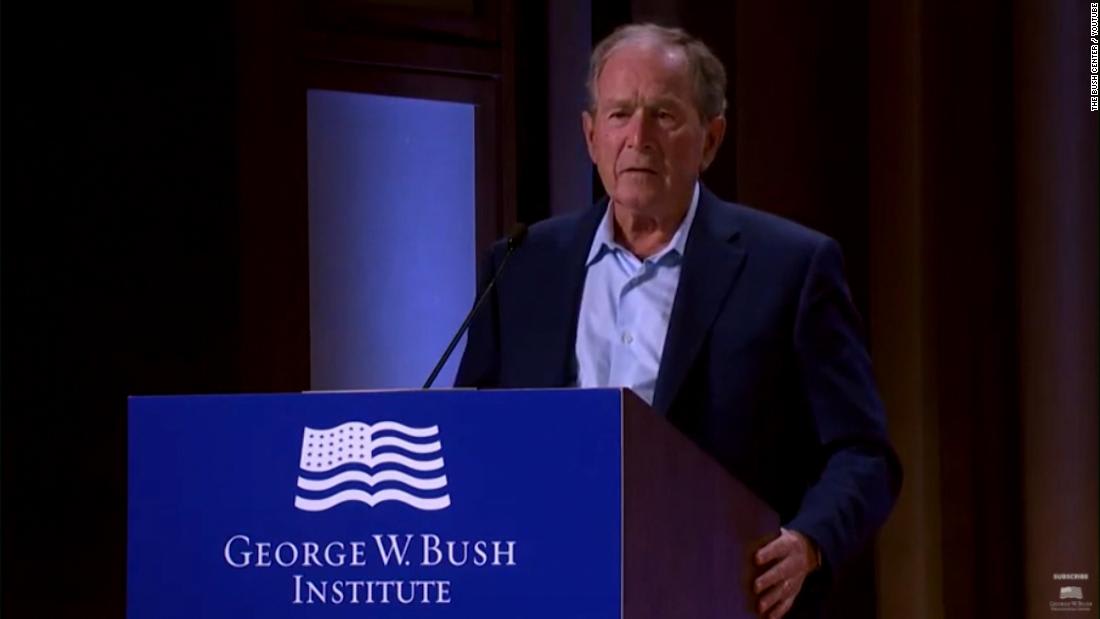
Former US President George W. Bush appeared to get his 21st century wars mixed up on Wednesday, accidentally calling the 2003 US invasion of Iraq “wholly unjustified and brutal,” before saying he actually meant the Russian invasion of Ukraine.
Bush was speaking at an event at the George W. Bush Institute in Dallas, Texas.
“Russian elections are rigged. Political opponents are imprisoned or otherwise eliminated from participating in the electoral process.
“The result is an absence of checks and balances in Russia. And the decision of one man to launch a wholly unjustified and brutal invasion of Iraq, I mean of Ukraine,” Bush said.
“Iraq, too,” he added under his breath, chuckling.
“Anyway, I’m 75,” he said as the audience laughed.
Bush also called Ukrainian President Volodymyr Zelensky a “cool little guy” and “the Churchill of the 21st century” during his speech.
“He was empowered by electoral legitimacy,” Bush added.
“And now he’s leading his nation heroically against Russian invading forces, and defending his country.”
See the moment:
Crimean Tatars mark Stalin’s deportation, despite warnings from Russian authorities
From Oleksandra Ochman
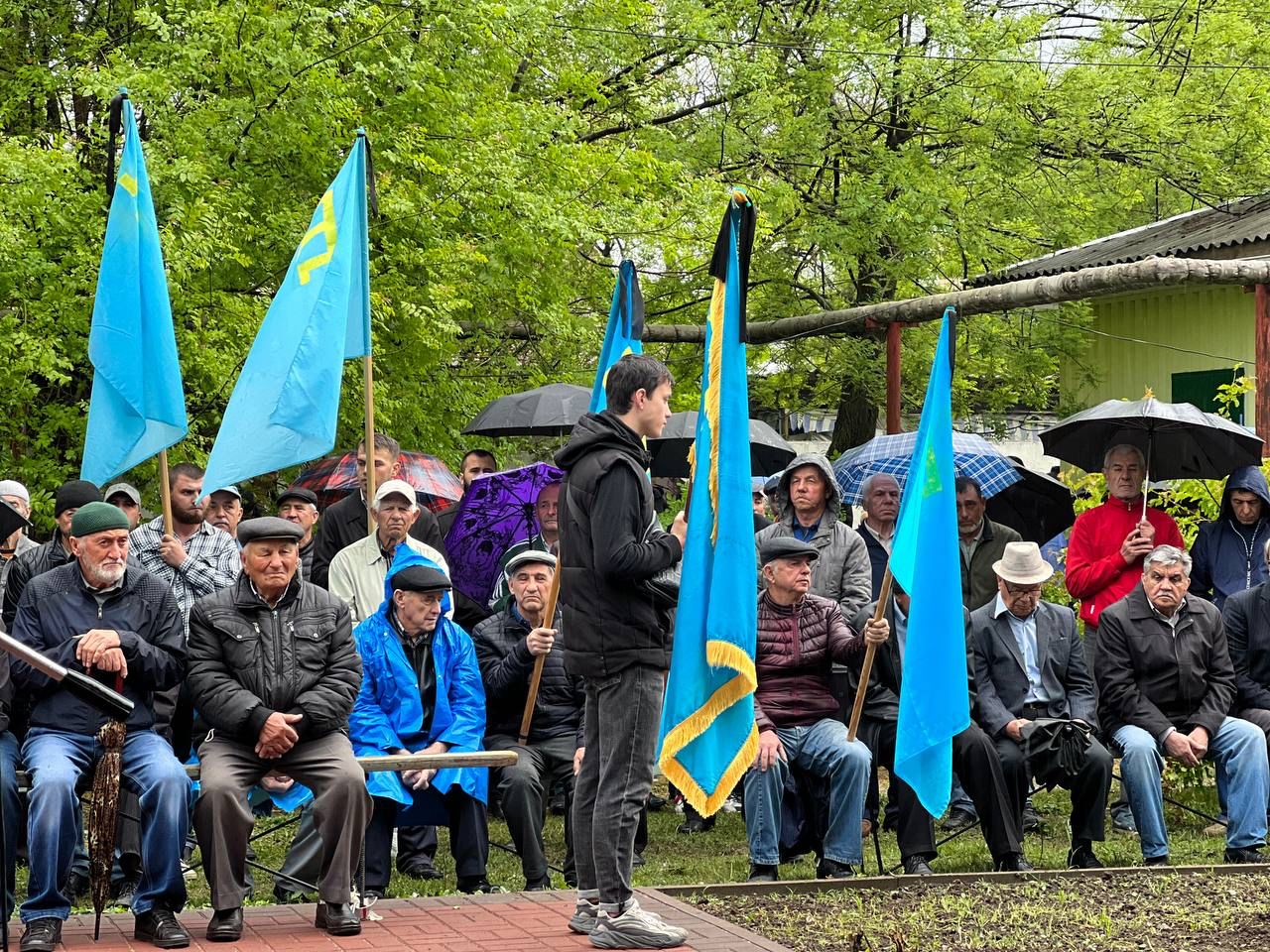
About 70 people in the Crimean capital have defied official warnings to commemorate the victims of Stalin’s mass deportation of the Tatar people in 1944.
They braved heavy rain and the risk of retribution to attend a memorial event at a plaque near the railway station in Simferopol, carrying flags and, in some cases, the Ukrainian colors in the shape of a bracelet or lapel pin.
Half the Crimean Tatar, a Sunni Muslim people, are thought to have died during their forced removal to remote parts of the Soviet Union; their descendants speak of the deportation as genocide.
But for the past eight years, since Russia annexed Crimea, they have been refused permission to commemorate the horror.
The Kharkiv Human Rights Group, which investigates abuses throughout Ukraine, says that this year Tatar activists received warnings from Russian officials in Crimea about “the inadmissibility of extremist activities.”
But the event went ahead, with the elderly making up the majority of attendees.
One young man who attended said that, before the Russian annexation of Crimea in 2014, as many as 50,000 people would converge on the main square in Simferopol to mark the anniversary.
Many of them had returned to their homeland after the fall of the Soviet Union and the Tatar community had flourished again.
CNN is not naming the man for his own safety.
“It was prohibited to make such demonstrations in recent years,” he told CNN, and gradually the numbers turning out had fallen.
“People are going in small groups to the mosques, cemeteries, and memorials,” he said.
But he had wanted to come to the event in Simferopol, to “get together in a crowd with our flags, pray together and commemorate this tragedy, because it moves the soul.”
About 200 Tatars gathered in Büyük Onlar (named by the Soviets as Oktyabrskoe) where a prayer was said in the rain and children read poems.
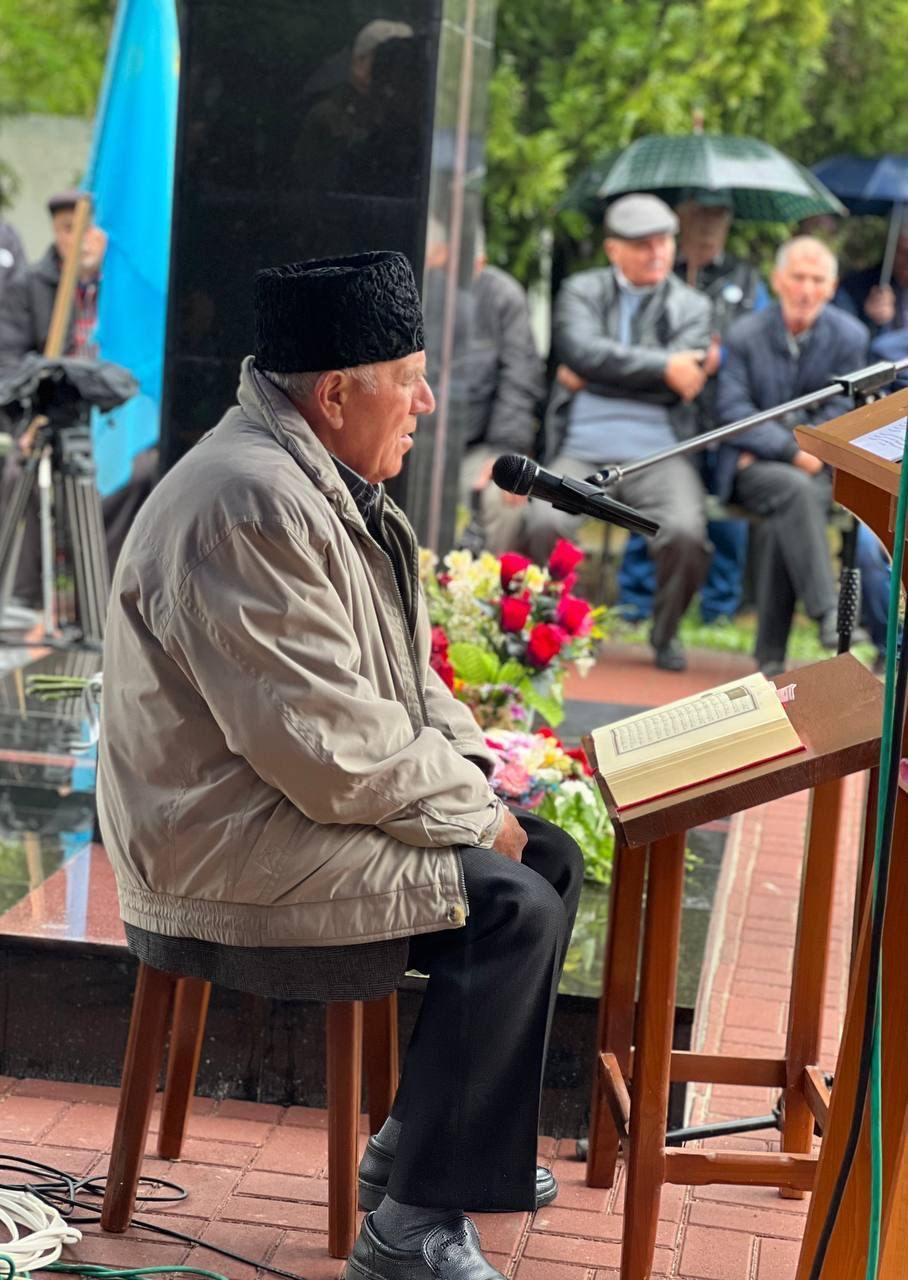
The anniversary was also marked by the Ukrainian government, which drew parallels with Russia’s ongoing invasion.
President Volodymyr Zelensky signed legislation “for the protection of all ordinary peaceful, civilian people who were repressed by the occupiers and who were taken prisoner by them.”
Tamila Tasheva, Zelensky’s representative to Crimea, said: “We cannot help but draw parallels to 1944. Current crimes have a long history … Crimean Tatars are no longer put in freight cars and taken out by force, but [the Russians] create conditions for us to leave our historical homeland.”
Those Tatars who do protest or promote the Crimean identity often find themselves in court.
According to the human rights group Crimea SOS, nearly 100 Tatars are victims of politically-motivated criminal prosecution; many of them are serving long jail sentences.
Eskender Bariiev, a leading Crimean Tatar activist, says the historical parallels of 1944 with today are unmistakable.
“The Crimean Tatar people were accused of collaborating with the Nazis and [Stalin] conducted a special operation, thus deporting Crimean Tatars from Crimea,” Bariiev said this week.
“Now under the slogans of denazification and demilitarization, the occupiers launched a so-called special operation, and in fact the genocide of the Ukrainian people.”
Bariiev said that, just as the Crimean Tatars had been deported, so too the Russians were now forcibly deporting hundreds of thousands of Ukrainians, mostly to remote parts of Russia.
It’s 2 p.m. in Kyiv. Here’s what you need to know
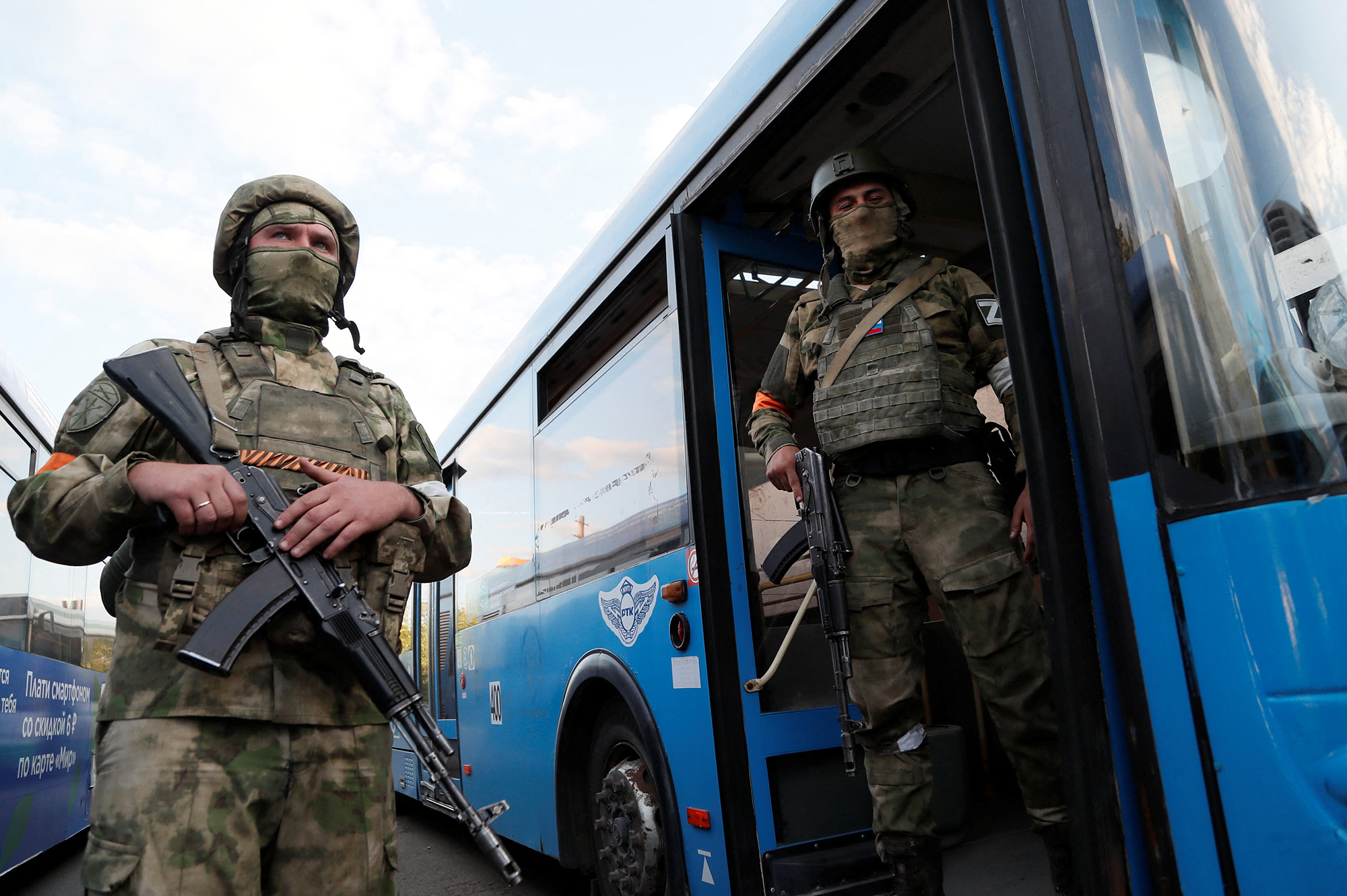
Russia’s says 1,730 Ukrainian soldiers have surrendered at the Azovstal steel plant in Mariupol since Monday, and the World Food Programme has called on Russian President Vladimir Putin to allow grain shipments to leave Ukrainian ports or risk widespread hunger.
Here’s the latest on the war in Ukraine:
Almost 2,000 Ukrainian soldiers surrender: The Russian Defense Ministry said Thursday that 771 Ukrainian soldiers have surrendered at the Azovstal steel plant in Mariupol in the last 24 hours, taking the total to 1,730 since Monday.
Calls for Ukrainian grain shipments: A failure to open closed ports in Ukraine to ship grains out will bring millions of people to the brink of starvation, said the executive director of the World Food Programme.
Civilian infrastructure damaged in Russian strikes: The town of Bakhmut in the Donetsk region, an important hub for the Ukrainian military, is coming under increasing attack from Russian missiles and artillery, according to Ukrainian officials, and civilian infrastructure has been damaged.
Russian offensive fails: The Ukrainian military reported that Russian forces trying to break through to Sloviansk, in eastern Ukraine’s Donetsk region, had suffered losses and retreated. Despite artillery and missile attacks by Russian forces on a wide front over the past 24 hours, there are no signs they have taken new territory.
Russian civilian killed: One civilian was killed and several people were wounded as a result of Ukrainian strikes in Russia’s western region of Kursk at dawn on Thursday, according to regional governor Roman Starovoit.
Scholz proposes solidarity fund: The European Union must start preparations for rebuilding Ukraine by setting up a solidarity fund to aid Kyiv in covering the billions of euros reconstruction will cost, according to German Chancellor Olaf Scholz.
Biden to meet Finnish and Swedish leaders: US President Joe Biden is scheduled to meet with the leaders of Finland and Sweden on Thursday as part of a show of support by the United States after the two nations submitted their formal applications to become NATO members.
New Russian attacks on Donetsk town hit civilian infrastructure, Ukraine says
From CNN’s Tim Lister
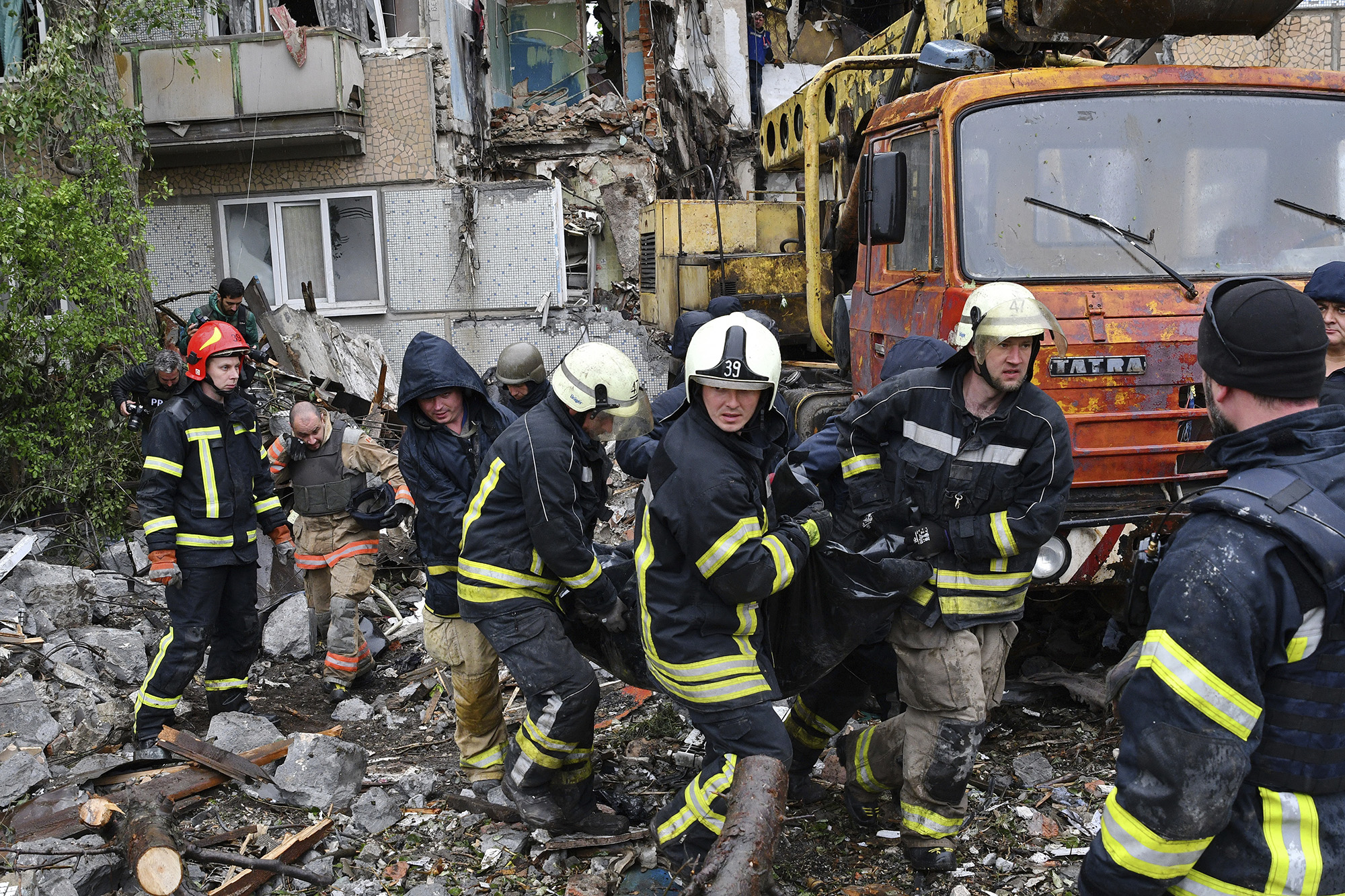
The town of Bakhmut in the Donetsk region, an important hub for the Ukrainian military, is coming under increasing attack from Russian missiles and artillery, according to Ukrainian officials.
Pavlo Kyrylenko, head of Donetsk regional military administration, said Thursday there had been another airstrike on the town, where some 20,000 people still live.
Kyrylenko said a five-story residential building and an office building had been hit and that so far six people have been rescued from the rubble.
“The Russians continue to fire at civilians, but timely evacuation allows us to save hundreds of lives,” Kyrylenko said.
“Out of the 73,000 inhabitants of Bakhmut, just over 20,000 now remain in the city, thanks to which we are able to avoid the number of casualties that the enemy expects.
Once again, I ask everyone who has the opportunity to leave the Donetsk region. Now there are no absolutely safe places in Donetsk region,” he added.
In recent days, Russian fire has intensified on places beyond the front lines in Donetsk, but Kyrylenko said Ukrainian units were resisting any advances on the ground.
“The enemy tried to make a breakthrough in the direction of Avdiyivka and Maryinka, on the route between Bakhmut and Lysychansk,” but had been repelled and “retreated to previous positions,” he said.
Some background: The Ukrainian military reported on Thursday that Russian forces trying to break through to Sloviansk, in eastern Ukraine’s Donetsk region, had suffered losses and retreated.
Despite artillery and missile attacks by Russian forces on a wide front over the past 24 hours, there are no signs they have taken new territory.
Red Cross says it is registering hundreds of Ukrainian soldiers leaving the Azovstal steel plant
From CNN’s Tim Lister and Zahid Mahmood
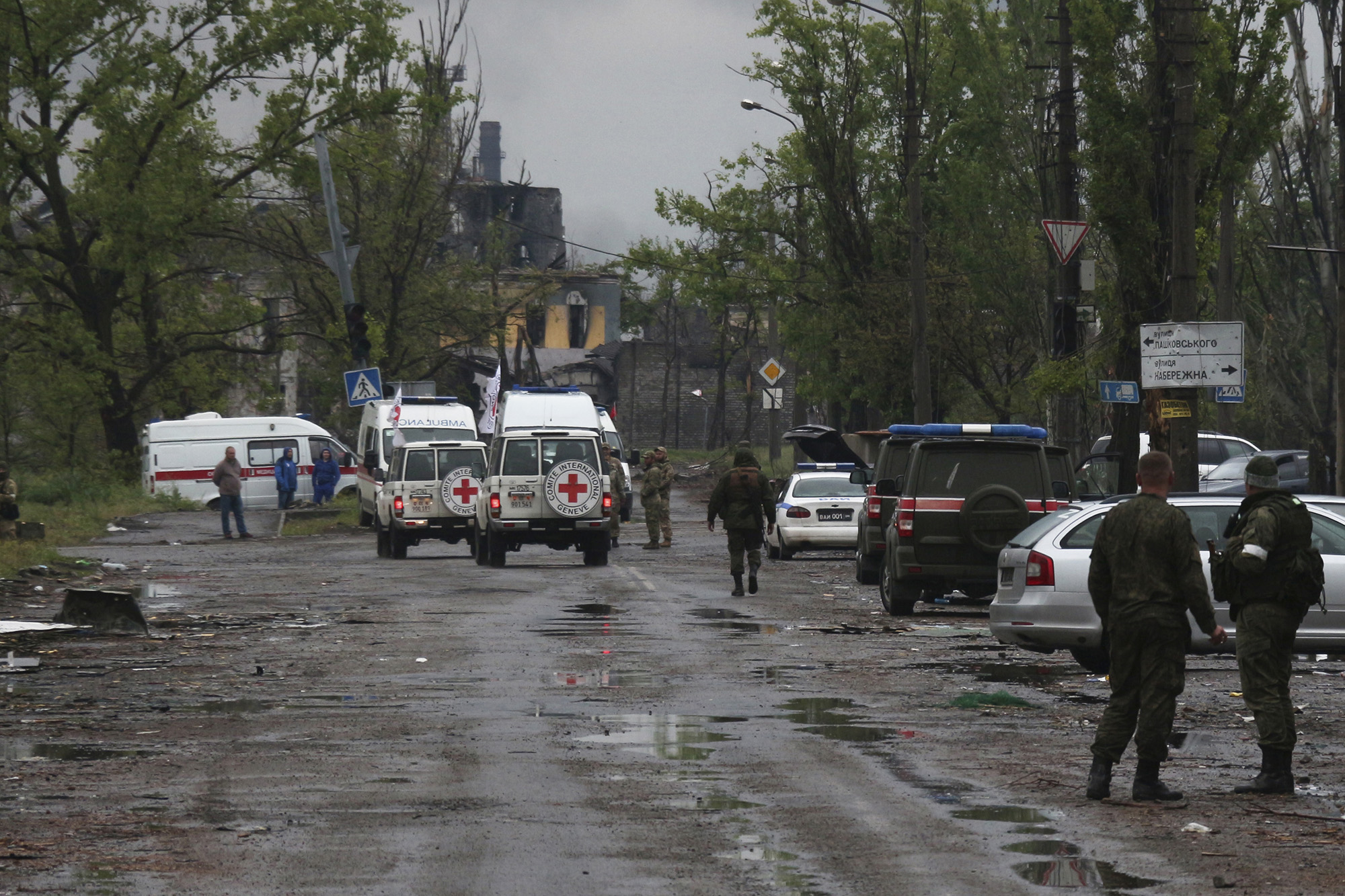
The International Committee of the Red Cross (ICRC) says it has registered hundreds of Ukrainian prisoners of war who have left the Azovstal steel works in Mariupol this week.
On Tuesday the ICRC started “to register combatants leaving the Azovstal plant, including the wounded, at the request of the parties,” it said in a statement from its headquarters in Geneva.
“The operation continued Wednesday and was still ongoing Thursday,” it added.
Russia has said that some 1,700 Ukrainian soldiers have left the plant — but several hundred more are reportedly still inside.
“The ICRC is not transporting POWs to the places where they are held,” said the ICRC. “The registration process that the ICRC facilitated involves the individual filling out a form with personal details like name, date of birth and closest relative,” reads the statement.
“This information allows the ICRC to track those who have been captured and help them keep in touch with their families,” it added.
“In accordance with the mandate given to the ICRC by States under the 1949 Geneva Conventions, the ICRC must have immediate access to all POWs in all places where they are held,” continued the statement.
“The ICRC must be allowed to interview prisoners of war without witnesses, and the duration and frequency of these visits should not be unduly restricted,” said the organization. “Whenever circumstances permit, each party to the conflict must take all possible measures to search for and collect the dead.”
A Russian soldier’s war crimes trial has resumed
From CNN’s Saskya Vandoorne in Kyiv
A Russian soldier is back in a larger Kyiv court on Thursday after proceedings were adjourned Wednesday because the courtroom was too small to accommodate the 150 journalists who turned up.
The trial of Vadim Shishimarin is the first Ukrainian war crimes trial since the Russian invasion started.
The 21-year-old soldier pleaded “fully” guilty Wednesday to shooting an unarmed 62-year-old civilian in Ukraine’s Sumy region on the fourth day of the war and is facing a life sentence.
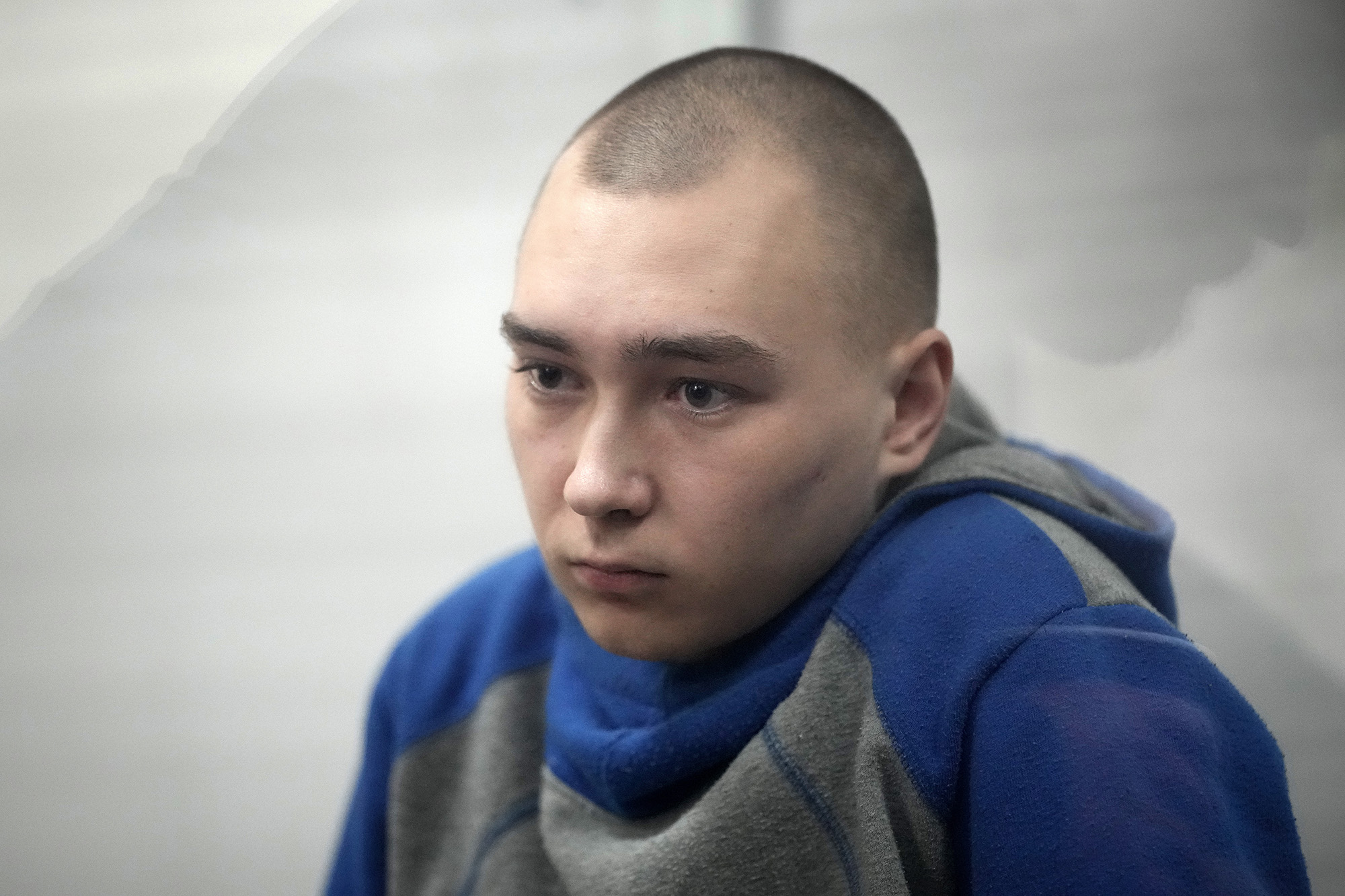
On Thursday, three judges will hear testimony from Shishimarin, as well as from the victim’s widow.
Two other witnesses will be called by the prosecution, including a second Russian soldier who was in the same car as Shishimarin when he allegedly fired his Kalashnikov.
Shishimarin’s lawyer, Volodymyr Ovsyannikov, told CNN he would be raising the question of whether the prisoner of war being called as a witness is providing his testimony voluntarily.
Ovsyannikov said he welcomed the opportunity to provide a fuller picture of the precise events of February 28.
The Kremlin said Wednesday that it had no information about the case.
Failure to open ports in Ukraine a “declaration of war” on global food security, says WFP chief
From CNN’s Sharon Braithwaite in London
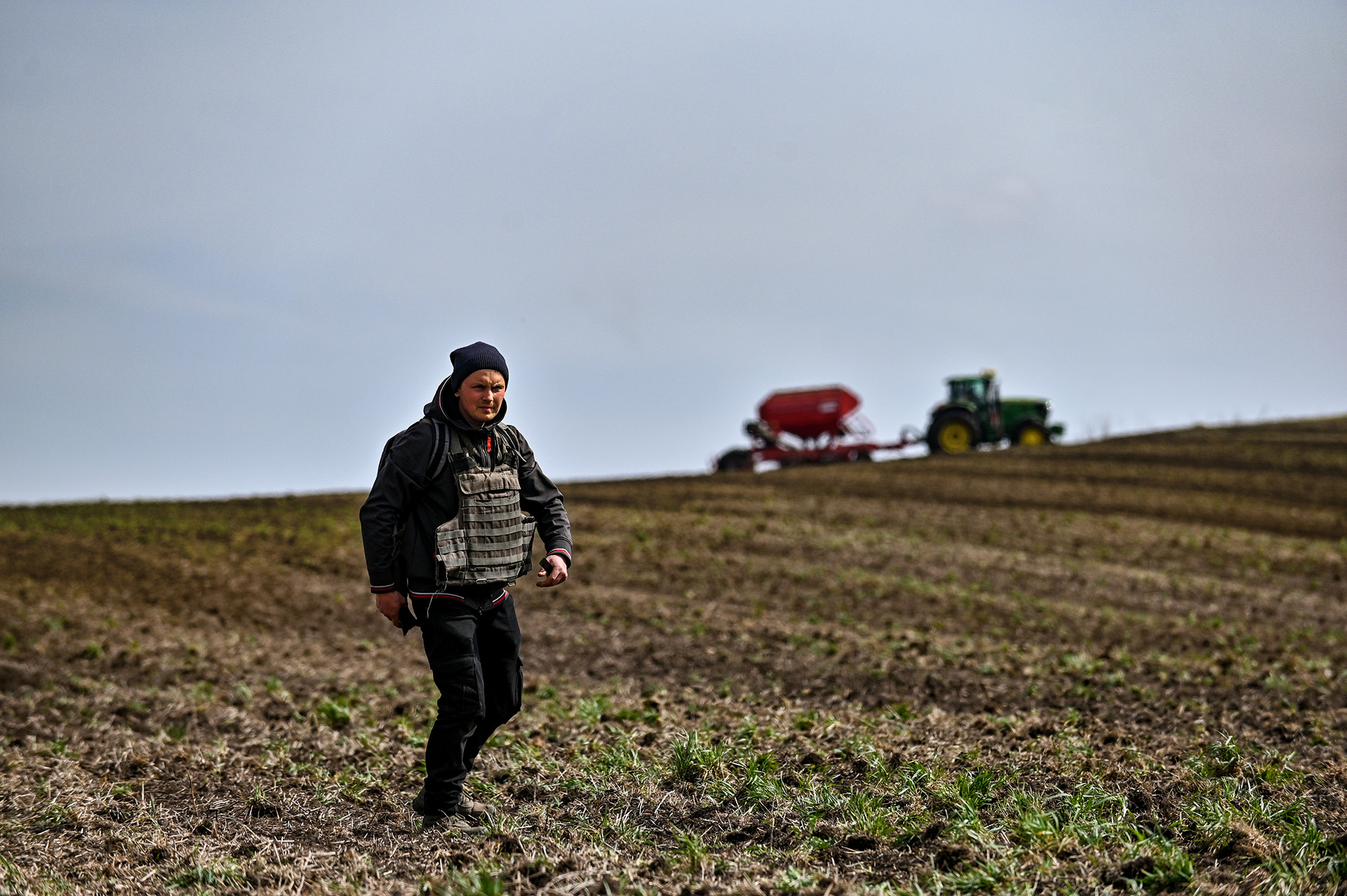
A failure to open closed ports in Ukraine to ship grains out will bring millions of people to the brink of starvation, said the executive director of the World Food Programme (WFP).
“Failure to open the ports will be a declaration of war on global food security, resulting in famine destabilization of nations, as well as mass migration by necessity,” said David Beasley on Wednesday, addressing a food security meeting at the United Nations hosted by US Secretary of State Antony Blinken.
The US is working closely with European allies to try to develop routes to get Ukrainian wheat and corn out of the country after Russia blocked Ukrainian ships from departing with grain that is vital for food supplies around the world, particularly in Africa and the Middle East.
“It is absolutely essential that we allow these ports to open because this is not just about Ukraine. This is about the poorest of the poor around the world who are on the brink of starvation as we speak,” Beasley added.
“So I ask President Putin, if you have any heart at all, please open these ports. Please assure everyone concerned that the passageways will be clear so that we can feed the poorest of the poor and avert famine, as we’ve done in the past, when nations in this room have stepped up together,” the WFP chief said.
He noted that Ukraine is a nation that grows enough grain to feed 400 million people and that is now out of production.
It is “critical” that these farms get back in operation, that trucks, trains and ships can move again, he added, stressing that “time is running out.”
On Wednesday, UN Secretary General Antonio Guterres also addressed how the war in Ukraine, on top of other global crises, “threatens tens of millions of people with food insecurity, malnutrition, mass hunger and famine.”
“There is enough food in our world for everyone, but we must act together, urgently and with solidarity,” Guterres said.
Source: https://www.cnn.com/europe/live-news/russia-ukraine-war-news-05-19-22/h_f42d6443e9151bfe2259748441d52f6e

















